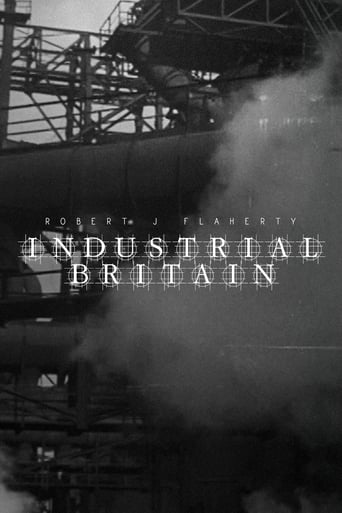

The 21-minute "Industrial Britain" was originally planned as a picture running more than twice that length, but director Robert Flaherty was taken off this project mid-production and the footage given over to others within the Empire Marketing Board to sort out and finish; ultimately the footage was shaped into five different films. The only credit on the film is "Grierson -- Flaherty" so obviously John Grierson still saw the value of placing Flaherty's name on the finished film. But we cannot know what Flaherty really had in mind for this project as he made no script and did not edit the footage as he would have seen fit. No matter what his intentions, "Industrial Britain" still became the basic seed from which the distinctive British documentary was germinated. The visuals that Flaherty supplied were much stronger than what the EMB was used to and the editing -- achieved mostly by Edgar Anstey -- matched the footage up real well to an anonymously written, stentorian narration which celebrates the ingenuity of British industry. There is a special emphasis on highly skilled craftsmen and the notable absence of ordinary workers -- we go down into the mines but we do not see miners; instead we see a swinging pick ax shearing off coal. Although British documentarians ultimately rejected the romantic attitude that Flaherty used to sell a story, they learned from "Industrial Britain" that filming a documentary is more than just point and shoot -- it is also a matter of exploration, investigation and discovery. Many 21st century viewers will find it's tone dull and stodgy, being overused to the now outdated sub-genre that this picture very much helped to usher in. However, the photography is brilliantly composed, and to some extent the cutting rises to the occasion. "Industrial Britain" remains a significant milestone in the development of documentary style in the UK, despite the fact that its maker had no input into the finished product.
... View MoreGrierson set out to make "propaganda," and this film--with it's voice-over proclaiming the great value of the British industrial worker, without a hint of ambiguity or doubt--fits that category well. The authoritatarian narrator feels out-of-date and unsophisticated, but the footage is well shot and interesting, and the transparency of the propaganda aspect is almost a reflief at a time when so many films have hidden agendas.
... View More